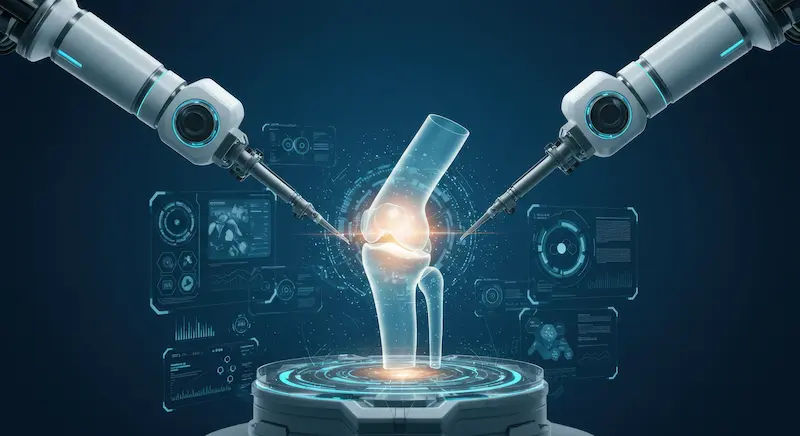Your Guide to Urologists: Who They Are & What They Treat
Learn who urologists are, the conditions they treat, and when to see one. Discover common urological problems in men and women, what to expect at your first visit, diagnostic tests, and treatment options ranging from medications to advanced surgery.

Written by Dr. Shaik Abdul Kalam
Reviewed by Dr. Rohinipriyanka Pondugula MBBS
Last updated on 13th Jan, 2026

When you have a health concern, knowing which specialist to see is the first step toward getting the right care. If you're experiencing issues "down there" or with your urinary system, you've likely been told to see a urologist. But what exactly is a urologist, and what can they do for you? This guide demystifies the field of urology, providing a clear and comprehensive overview of these vital medical professionals. We'll explore the wide range of conditions they treat, from common infections to complex cancers, what to expect during a visit, and how they can help you achieve better urological health. Whether you're seeking answers for yourself or a loved one, understanding the role of a urologist is key to taking control of your well-being.
What is a Urologist? Defining the Specialist
A urologist is a physician who specialises in diagnosing and treating diseases of the urinary tract in both men and women, and the male reproductive system. Think of them as experts on the kidneys, bladder, ureters, urethra, and male organs like the penis, testes, prostate, and scrotum. They are surgeons trained in both open and minimally invasive techniques, but they also provide a vast amount of non-surgical care. After completing medical school, a urologist undertakes a rigorous 5-6 year residency program focused solely on urology, making them highly skilled experts in their field.
Urologist vs. Nephrologist: What's the Difference?
A common point of confusion is the difference between a urologist and a nephrologist. While both deal with the kidneys, their focus is different. A nephrologist is an internal medicine specialist who manages medical kidney diseases, such as chronic kidney disease (CKD), diabetes-related kidney damage, hypertension, and electrolyte imbalances. They primarily treat kidney function with medication and manage dialysis. A urologist, on the other hand, deals with the surgical and structural aspects—removing kidney stones, treating kidney cancer, and fixing blockages or physical abnormalities in the urinary tract. In short: nephrologists treat kidney function; urologists treat kidney structure and the rest of the urinary system.
What Conditions Do Urologists Treat?
The scope of urology is incredibly broad. Urologists manage a diverse portfolio of conditions that affect millions of people.
Common Urological Conditions in Men and Women
Urinary Tract Infections (UTIs): While often treated by primary care, recurrent or complicated UTIs are referred to urologists.
Kidney Stones: Urologists are the stone experts. They manage pain, help with stone passage, and perform procedures like lithotripsy (breaking stones with sound waves) or ureteroscopy (using a scope to remove stones).
Bladder Issues: This includes overactive bladder (OAB), urinary incontinence (leakage), and interstitial cystitis (a chronic bladder pain syndrome).
Cancers: They are front-line in diagnosing and surgically treating cancers of the bladder, kidneys, ureters, and adrenal glands.
Conditions Specific to Male Health
Enlarged Prostate (BPH): Benign Prostatic Hyperplasia is a non-cancerous enlargement of the prostate gland that can cause urinary difficulties in older men.
- Prostate Cancer: Urologists perform screenings (PSA tests), biopsies, and are the primary surgeons for prostatectomy.
Erectile Dysfunction (ED): They diagnose the root cause (which can be vascular, neurological, or psychological) and offer treatments from medication to implants. - Low Testosterone: Urologists evaluate and treat testosterone deficiencies.
- Male Infertility: They assess and treat issues affecting sperm production and delivery.
When Should You See a Urologist?
Key Symptoms
Don't ignore persistent symptoms related to your urinary or reproductive health. Schedule an appointment with a urologist if you experience:
- Blood in your urine (hematuria)
- Frequent, urgent, or painful urination
- Recurrent urinary tract infections
- Pain in your lower back, pelvis, or sides (potential kidney stone)
- A noticeable change in urinary stream, flow, or consistency
Urinary incontinence or leakage
For men: erectile dysfunction, low libido, or a lump in the testicle
What to Expect During Your First Urology Visit
Your first appointment is about building a complete picture of your health.
The Consultation and Medical History
The urologist will have an in-depth conversation with you about your symptoms, their duration, and their severity. They will review your full medical history, current medications, lifestyle factors, and any family history of urological conditions. Being open and honest here is crucial for an accurate diagnosis.
Common Diagnostic Tests and Procedures
Based on your symptoms, the urologist may recommend:
- Urinalysis: A simple urine test to check for infection, blood, or other abnormalities.
- Blood Tests: Such as a PSA test for prostate health or a metabolic panel to check kidney function.
- Ultrasound: A non-invasive imaging test to visualise the kidneys, bladder, and prostate.
- Cystoscopy: A procedure where a thin, flexible scope with a camera is inserted through the urethra to examine the inside of the bladder and urethra.
Urodynamic Testing: Tests that measure how well the bladder and urethra are storing and releasing urine.
Consult a Urologist for Personalised Advice
Urological Treatments: From Medication to Surgery
Urologists have a vast arsenal of treatments at their disposal.
Non-Surgical and Minimally Invasive Options
Many conditions are managed effectively without major surgery. This includes:
- Lifestyle modifications (e.g., dietary changes for stones, bladder training for incontinence).
- Medications (e.g., antibiotics for infections, alpha-blockers for BPH, PDE5 inhibitors for ED).
- Minimally Invasive Procedures like lithotripsy for stones or Rezum therapy for BPH.
Advanced Surgical Techniques
When surgery is needed, urologists are leaders in innovative techniques:
- Laparoscopic/Robotic Surgery: Using small incisions and robotic systems (like the da Vinci Surgical System) for procedures like prostatectomy and nephrectomy. This offers less pain, less blood loss, and a faster recovery compared to open surgery.
- Laser Surgery: Commonly used to vaporise or resect prostate tissue in BPH surgery and to break up stones.
- Open Surgery: Still used for very complex cases or large tumours.
The Subspecialties Within Urology
The field is so diverse that many urologists pursue further fellowship training in a subspecialty:
- Oncological Urology: Focusing on cancers like prostate, bladder, and kidney cancer.
- Endourology: Specialising in minimally invasive stone disease treatment.
- Female Urology/Urogynecology: Focusing on pelvic organ prolapse and female urinary incontinence.
- Pediatric Urology: Treating urological conditions in children (e.g., bedwetting, congenital abnormalities).
- Andrology: Focusing on male infertility and sexual dysfunction.
- Reconstructive Urology: Rebuilding the urinary tract after injury or disease.
Conclusion
Understanding the vital role of a urologist is the first step in addressing a wide array of health issues that, while often uncomfortable to discuss, are incredibly common. These specialists offer expert care for the systems that are fundamental to your daily comfort and overall health. From managing a simple kidney stone to performing life-saving cancer surgery, their expertise is vast. If you are experiencing any persistent symptoms related to your urinary or reproductive health, do not hesitate to seek help. Talking to your primary care physician about a referral to a qualified urologist can provide you with answers, effective treatment, and, most importantly, peace of mind. Taking action today can lead to a healthier, more comfortable tomorrow.
Consult a Urologist for Personalised Advice
Consult a Urologist for Personalised Advice

Dr. Moin Mohammed Bavakatti
Urologist
13 Years • MBBS, MS (General Surgery), Mch (Urology), DNB (Urology), Diploma in Minimal Access Surgery, Fellow of Internal College of Robotic Surgeons), Vinci Surgical system, Fellow in Endocrinology, Clinical and Research fellow in Laparoscopic Urology, Laser Endourology & Laparoscopic & Robotic Urology, Fellowship in 3D laparoscopic Urology
Bengaluru
Dr Moin Mohammed Bhavikatti Clinic, Bengaluru

Dr. Kunal Kumar Mehar
Urologist
10 Years • Mbbs, Ms, Mch
Bengaluru
Apollo Medical Center, Marathahalli, Bengaluru

Dr. Gaurab Dasgupta
Urologist
14 Years • MBBS, MS General Surgery, MCH Urology, FMAS
Kolkata
MCR SUPER SPECIALITY POLY CLINIC & PATHOLOGY, Kolkata

Dr. Yogesh Taneja
Urologist
15 Years • MBBS , MS (General surgery), DNB (Genito Urinary Surgery)
Gurugram
Procyon Health, Gurugram
Dr. Mohammed Rehan Khan
Urologist
8 Years • MBBS, MS (General Surgery), Mch (Urology)
Barasat
Diab-Eat-Ease, Barasat
Consult a Urologist for Personalised Advice

Dr. Moin Mohammed Bavakatti
Urologist
13 Years • MBBS, MS (General Surgery), Mch (Urology), DNB (Urology), Diploma in Minimal Access Surgery, Fellow of Internal College of Robotic Surgeons), Vinci Surgical system, Fellow in Endocrinology, Clinical and Research fellow in Laparoscopic Urology, Laser Endourology & Laparoscopic & Robotic Urology, Fellowship in 3D laparoscopic Urology
Bengaluru
Dr Moin Mohammed Bhavikatti Clinic, Bengaluru

Dr. Kunal Kumar Mehar
Urologist
10 Years • Mbbs, Ms, Mch
Bengaluru
Apollo Medical Center, Marathahalli, Bengaluru

Dr. Gaurab Dasgupta
Urologist
14 Years • MBBS, MS General Surgery, MCH Urology, FMAS
Kolkata
MCR SUPER SPECIALITY POLY CLINIC & PATHOLOGY, Kolkata

Dr. Yogesh Taneja
Urologist
15 Years • MBBS , MS (General surgery), DNB (Genito Urinary Surgery)
Gurugram
Procyon Health, Gurugram
Dr. Mohammed Rehan Khan
Urologist
8 Years • MBBS, MS (General Surgery), Mch (Urology)
Barasat
Diab-Eat-Ease, Barasat




